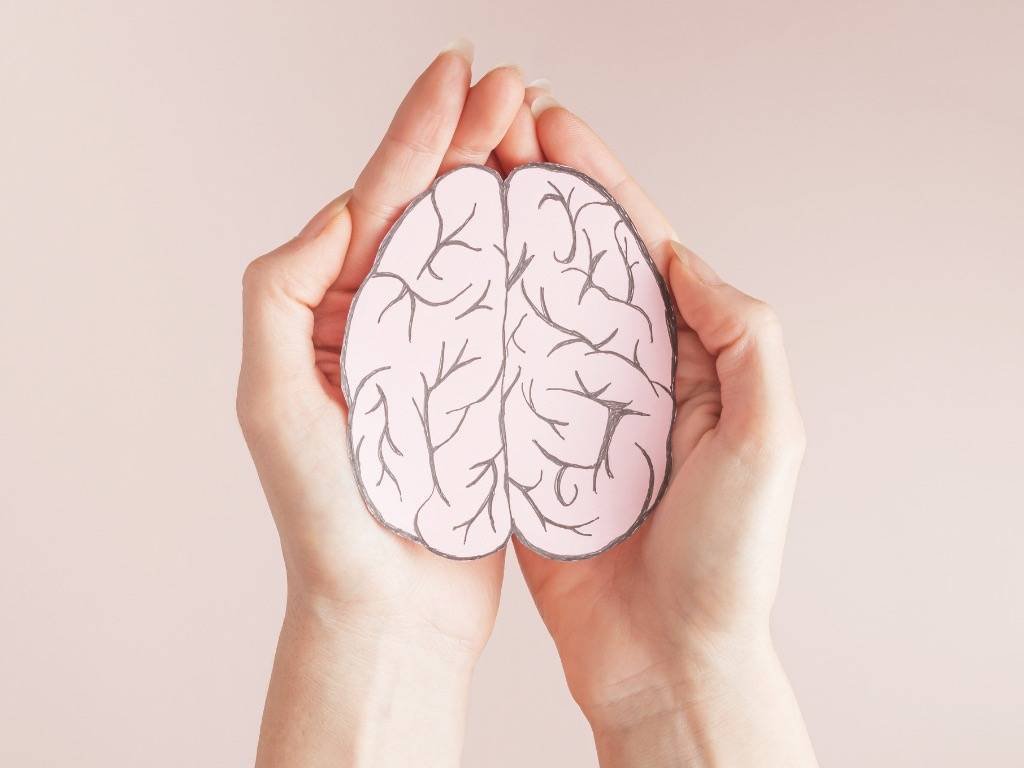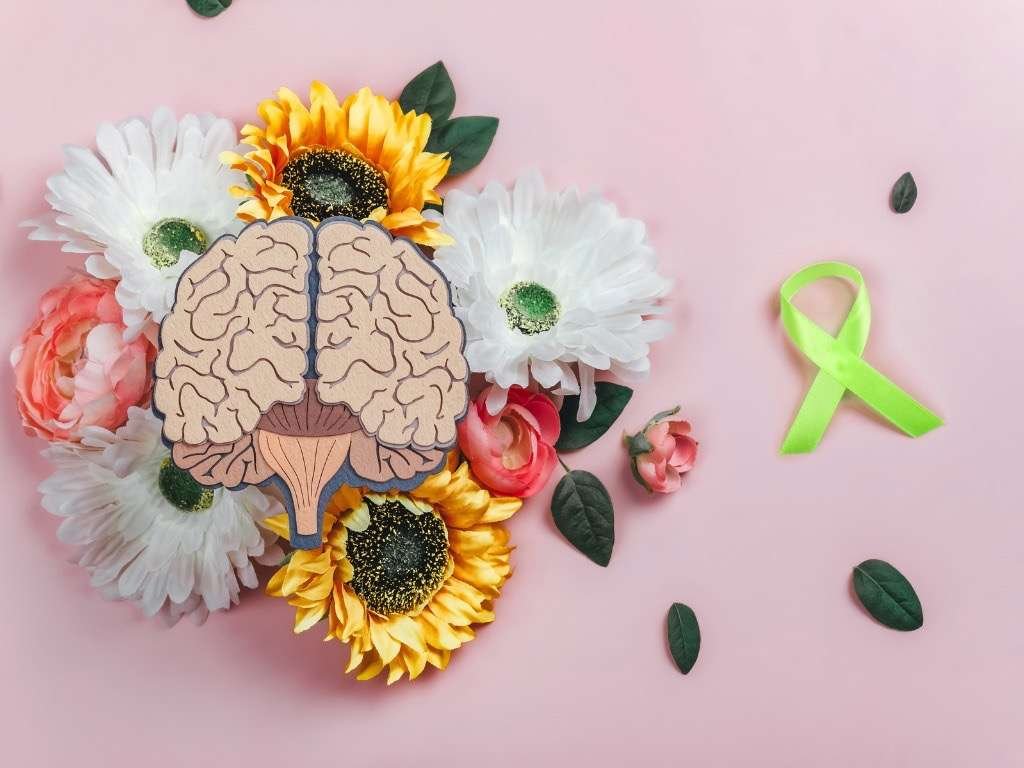What if the most harmful thing about mental health isn’t the illness itself—but the myth you were taught to believe?
You often hear things like “snap out of it” or “be strong.” But these words ignore how our brains and bodies work. During mental health awareness month, groups like the National Alliance on Mental Illness and the American Psychological Association run campaigns. Yet, stigma still exists.
Terms like “schizo” and “psycho” spread fear. They link mental illness with violence. This keeps people from seeking help.
This guide will challenge five myths that block access to therapy and treatment. You’ll learn that mental health issues affect people of all ages, genders, races, and incomes. Also, one in five adults faces a mental health issue each year.
Most importantly, you’ll discover how evidence-based care can help. This includes cognitive behavioral therapy, medication management, and small lifestyle changes.
If you’ve ever wondered if therapy is only for severe cases, or if a diagnosis means you’ll never recover, keep reading. Mental Health Awareness is based on facts, not fear. It offers a clear path to take action today.

Why the importance of mental health matters for your emotional well-being
You take care of your body, so why not your mind? Mental health is linked to your daily life, work, and home life. By focusing on Mental Health Awareness, you protect your emotional health and find support that really helps.
Small steps count. Talking to a counselor, checking in with your doctor, or having a stress plan are all important. They are not extras, but essential for your well-being.
How myths create barriers to care and reduce help-seeking
Myths tell you to “tough it out” or wait for a bad spell to pass. This blocks you from getting help like therapy or support groups. By seeing symptoms as weakness, myths delay treatment and make stress harder to handle.
By replacing myths with facts, you reduce fear and open up real options. You also create a plan for follow-ups, which supports your emotional well-being over time.
Offensive labels and the stigma linking mental illness with violence
Words like “schizo” or “psycho” are not just rude. They falsely link mental illness with violence. This stigma makes you less likely to seek help when you need it.
Choose accurate language and speak out against harmful labels. This is part of Mental Health Awareness and shows the importance of mental health everywhere—home, school, and work.
Prevalence data: mental health issues affect diverse communities
Mental health conditions are found in every group and neighborhood. About one in five U.S. adults faces a mental health issue each year, and around one in 20 lives with a serious condition. Many people who seem fine are actually struggling, so don’t judge by appearance.
These numbers show why early, routine care is crucial for your emotional well-being. They also highlight why mental health is important for everyone, and why broad Mental Health Awareness helps reduce silent suffering.
Mental Health Awareness
You build Mental Health Awareness by replacing myths with facts. You learn to spot stress, anxiety, and mood swings. Knowing when to seek help supports your emotional health and helps others too.
During mental health awareness month, campaigns challenge false beliefs. They show that problems are common, affect many, and aren’t just phases. They also debunk the idea that being “strong” fixes everything.
With awareness, you look for care that fits you. Options like therapy, medication, and daily habits help. These steps improve your emotional well-being over time.
You can help others by using kind language and guiding them to trusted resources. This includes community clinics and licensed therapists. Preparing for trial and follow-up with medication is also important for safe care. These actions keep Mental Health Awareness going all year.
Small actions make a big difference: take breaks, keep a mood log, and practice grounding skills daily. When myths pop up, share facts and empathy. This protects your emotional well-being and encourages others to seek help sooner.

Myth: Only certain people struggle with mental health disorders
This idea is not true. Mental Health Awareness shows that everyone needs mental health care. It doesn’t matter where you live or what you earn.
High-performing people can struggle, too. Even if you lead a team or study hard, you might need help. Learning about mental health helps you spot signs early and act confidently.
Reality: Conditions affect all ages, genders, races, and socioeconomic groups
Mental health issues can start in childhood, peak in midlife, or show up later. They touch people of all backgrounds and income levels. Mental Health Awareness highlights the need for care everywhere, from small towns to big cities.
Stigma looks different in different places, but the need for care is the same. You deserve respect, effective treatments, and care that fits your life.
What this means for access, equity, and cultural competence
When you seek help, you should find providers who respect your culture and values. Clinics and insurers can help by offering more hours, telehealth, and affordable fees. This helps people who work odd hours, care for family, or live far from clinics.
Ask for interpreters, care that respects your gender identity, and practices that avoid triggering trauma. Equity grows when services fit your needs and when Mental Health Awareness is part of schools, workplaces, and faith settings.
How to maintain mental health across different life stages
In youth, learn coping skills, keep a regular sleep schedule, and talk to a trusted adult. In adulthood, combine regular exercise, social support, and therapy like CBT for stress. In older age, protect your sleep, stay connected, and discuss medication with your doctor.
- Use brief check-ins: mood, energy, sleep, and focus.
- Practice small resets: a walk, slow breathing, or journaling.
- Seek care early; ask about CBT, group therapy, and safe medication options.
These steps help you maintain mental health with steady habits and timely care. Keep track of changes, share updates with your provider, and adjust your plan as life changes. This is the essence of Mental Health Awareness and the importance of mental health for you and your community.
Myth: Mental health problems are rare
This myth is common, but reality is different. Mental health issues show up in daily life, at work, home, and online. Mental Health Awareness helps you spot these signs early, protecting your emotional health.
Reality: Approximately one in five adults experience an issue annually
In big offices, schools, or stadiums, many face unseen struggles. Open conversations and screenings are key. Early action can simplify care and reduce stress and anxiety.
Serious conditions are more common than you think
Millions live with depression, anxiety, or bipolar disorder, yet keep up with work and family. Symptoms can be hidden, affecting people deeply. Mental Health Awareness fosters honest talks and supports your emotional health.
Why early support helps reduce stress and anxiety
Early therapy or counseling sets a plan before problems arise. You learn coping skills, track patterns, and build routines. With ongoing support, you protect your emotional well-being and enhance daily life.
Key takeaway for you: common does not mean hopeless—common means understandable and treatable.
Myth: Anxiety and depression are just phases you can snap out of
You can’t just will away generalized anxiety disorder or major depressive disorder. These are serious medical conditions. They affect how your brain handles stress, sleep, and mood. By understanding Mental Health Awareness, you can seek the right care for your life.
Many people hide their worries or low mood behind a mask of success. But, outward success doesn’t mean you’re not hurting inside. Trying to be strong can actually delay getting help. Getting care early can help manage stress and anxiety and protect your emotional health.
Evidence-based care works best when it is structured, consistent, and tailored. Cognitive behavioral therapy can change harmful thought patterns. A doctor can help manage medication. Small habits like regular sleep, exercise, and socializing help you move forward.
If you feel constant dread, lose interest, or have panic that affects your life, treat it seriously. Using tools for Mental Health Awareness helps you track patterns and set goals. This steady approach supports your emotional well-being without blaming yourself.
| Common Misbelief | What Actually Helps | Practical First Steps | Benefits You Can Notice |
|---|---|---|---|
| “I should snap out of it.” | CBT to challenge unhelpful thoughts | Schedule a session with a licensed therapist | Clearer thinking and fewer spirals |
| “It’s just a rough week.” | Medication management when clinically indicated | Consult your primary care clinician or psychiatrist | Stabilized mood and energy |
| “Stress is normal for me.” | Sleep, exercise, and nutrition routines | Create a consistent wind-down and walking plan | Reduce stress and anxiety day to day |
| “I don’t want to burden others.” | Peer and family support with clear boundaries | Tell one trusted person what you need this week | Improved emotional well-being and connection |
Think of care as training, not a test of character. When you align daily habits with treatment, you build resilience. Over time, this steady path can reduce stress and anxiety and strengthen your emotional well-being within a broader culture of Mental Health Awareness.

Myth: You only need treatment for severe cases
You don’t need a crisis to get help. Early support is key to Mental Health Awareness. It shows how to keep your mental health in check before problems start.
Your well-being improves when you treat stress, anxiety, or low mood early. Short sessions and skills practice give you momentum. These tips fit into a normal week and help you stay consistent.
Reality: Therapy helps mild to moderate stress, anxiety, and depression
Brief therapy can calm racing thoughts and ease tension. You learn tools to face triggers and handle daily strain. This is how to maintain mental health in real time, not just in emergencies.
Proactive care and mental health tips that support recovery
- Book a first session when stress starts rising, not after it peaks.
- Use a mood log to track patterns and note wins each day.
- Practice breathing drills and short walks between tasks.
- Set a steady bedtime and reduce caffeine after noon.
- Share updates with your clinician to adjust plans fast.
These mental health tips align with Mental Health Awareness by keeping care simple and repeatable. Small, steady actions show you how to maintain mental health across busy weeks.
When to consider CBT, medication management, and lifestyle changes
Choose cognitive behavioral therapy when negative loops drive worry or low mood. CBT helps you spot distortions and test them against facts. You build coping plans you can use at work, school, or home.
Ask about medication management if symptoms persist, disrupt sleep, or limit daily tasks. Finding the right option can take time and fine-tuning. Report side effects and track changes so your prescriber can adjust.
| Option | Best For | Key Actions | Early Wins to Expect |
|---|---|---|---|
| CBT | Recurring worry, negative self-talk, avoidance | Thought records, exposure plans, skills practice | Clearer thinking, reduced panic spikes, better follow-through |
| Medication Management | Persistent symptoms, sleep disruption, functional limits | Start low, monitor effects, adjust dose with prescriber | More stable mood, improved focus, steadier energy |
| Lifestyle Changes | Stress buildup, fatigue, poor routines | Regular sleep, movement, balanced meals, social contact | Deeper rest, smoother mornings, fewer afternoon crashes |
Blending these choices supports Mental Health Awareness and gives you practical steps on how to maintain mental health. Start small, review results, and keep what works.
Myth: Once diagnosed, you can never recover
You might think a diagnosis means your future is set. But it’s not true. With support and goals, you can move towards happiness and stability. Mental Health Awareness shows treatment as a journey, not just a label.
Reality: Recovery Is Possible With the Right Care and Consistency
Recovery isn’t always easy. You make progress, adjust, and keep moving forward. Therapy, support from friends, and routines help your mental health.
Start with small, repeatable steps. Set reminders for therapy, refill meds, and add short walks or breathing exercises. These habits help manage stress and maintain mental health.
High-Functioning Doesn’t Mean Symptom-Free
Even if you’re doing well at work, you might still feel anxious or sad. Being busy doesn’t mean you’re symptom-free. Regular self-checks help keep Mental Health Awareness alive.
Watch for changes in sleep, appetite, or focus. Talk to your therapist about these changes to protect your mental health and lower the risk of relapse.
Medication Is Not a One-and-Done Solution—Patience and Monitoring Matter
Finding the right medication can take time. The first try might not work, but don’t give up. Keep in touch with your doctor to adjust your treatment plan.
Medication works best with therapy, exercise, and mindfulness. This combination helps maintain mental health over time, not just for a short period.
| Recovery Pillar | What You Do | Why It Helps | Support for Emotional Well-Being |
|---|---|---|---|
| Therapy | Weekly sessions; practice coping skills between visits | Builds tools for thoughts, moods, and triggers | Improves insight and steadies daily moods |
| Medication Management | Follow dosing; report effects; adjust as needed | Optimizes relief while limiting side effects | Reduces symptom load so life feels workable |
| Lifestyle Routines | Sleep schedule, balanced meals, regular movement | Strengthens brain and body resilience | Supports energy and stress control |
| Monitoring | Mood logs, sleep tracking, early warning plan | Flags shifts before they grow | Protects stability and confidence |
| Community | Peer groups, family check-ins, workplace accommodations | Shares burdens and practical tips | Boosts connection and lasting Mental Health Awareness |
Conclusion
Mental Health Awareness fights myths that hold people back. It shows that mental health issues are common, affecting many. About one in five adults faces a mental health issue each year, and one in 20 lives with a serious illness.
Labels that link illness with violence add shame and make help-seeking harder. The importance of mental health is clear: facts guide better choices than stigma ever will.
Strength by itself is not treatment, and “high-functioning” does not mean symptom-free. You can recover with consistent, evidence-based care. Cognitive behavioral therapy, patient medication management, and steady follow-ups all support progress.
Paired with sleep, movement, and social connection, these steps reduce stress and anxiety over time.
Act early if something feels off. Track your mood, speak with your clinician, and build a routine that protects your energy. Mental Health Awareness helps you spot warning signs, start care before crises, and maintain gains.
When you invest in the importance of mental health, you protect relationships, work, and daily life—and you reduce stress and anxiety in ways that last.
Your path is personal, but you do not walk it alone. Use trusted support, ask clear questions, and keep what works. With time and the right plan, you can feel better, function better, and stay well.
FAQ
Why does the importance of mental health matter for your emotional well-being?
Your mental health affects how you think, feel, and act every day. It impacts your relationships, work, sleep, and physical health. Taking care of your mental health reduces stress and anxiety, helps you make better decisions, and recover faster from setbacks.
How do myths create barriers to care and reduce help-seeking?
Myths make mental health challenges seem like weakness or a phase. This might make you delay seeking therapy or counseling. This delay can make symptoms worse and recovery harder. Facts can encourage you to seek care sooner.
Why are offensive labels harmful, and do they link mental illness with violence?
Labels like “schizo” or “psycho” wrongly link mental illness to violence. This fear and shame can stop you from getting help. Using respectful language supports mental health awareness and access to care.
Are mental health problems rare or limited to certain groups?
No. About one in five American adults face a mental health issue each year. Around one in 20 live with a serious mental illness. Conditions affect people of all ages, genders, races, and backgrounds. They are common and treatable.
What does “only certain people struggle with mental health disorders” get wrong?
Disorders don’t discriminate. Anyone can experience symptoms, regardless of age, income, race, or gender. This is why access to care should be fair and affordable for everyone.
What does access, equity, and cultural competence mean for your care?
It means getting care that respects your background, language, and values. Affordable, nearby, and culturally informed services encourage you to engage in treatment. This helps maintain mental health over time.
How can you maintain mental health across different life stages?
Build routines that fit your life stage. Use CBT skills, sleep 7–9 hours, move daily, and connect with supportive people. At any age, monitor symptoms, reduce stress and anxiety with mindfulness or breathing, and seek therapy early.
Why isn’t “mental health problems are rare” true?
Data show they are common and often underreported. Many high-functioning people hide symptoms. Recognizing how widespread conditions are helps you normalize care and get screened sooner.
Are serious conditions more common than you think?
Yes. Serious mental illness affects about one in 20 adults. Disorders like major depression, bipolar disorder, OCD, and schizophrenia require timely, evidence-based care to improve quality of life.
How does early support help reduce stress and anxiety?
Early therapy and counseling give you tools before symptoms escalate. You learn coping skills, adjust routines, and consider medication management if needed. Acting early shortens recovery and protects your emotional well-being.
Are anxiety and depression just phases you can snap out of?
No. Generalized anxiety disorder, major depressive disorder, and panic disorder are medical conditions. Telling yourself to “be strong” won’t resolve them. Evidence-based treatments like CBT, medication, and lifestyle changes are effective.
Do you only need treatment for severe cases?
No. Therapy helps mild to moderate symptoms too. Getting support early prevents worsening, reduces distress, and builds resilience. You don’t need to wait for a crisis to benefit from treatment.
What proactive mental health tips support recovery?
Schedule therapy, practice CBT skills, track mood and sleep, set small goals, and keep consistent routines. Use relaxation methods, limit alcohol and drugs, and stay active. These habits help you maintain mental health daily.
When should you consider CBT, medication management, and lifestyle changes?
Consider CBT when thoughts and behaviors fuel anxiety or depression. Talk to a prescriber about medication if symptoms persist or impair functioning. Pair both with sleep, exercise, and nutrition for comprehensive care.
If you get a diagnosis, can you still recover?
Yes. A diagnosis guides treatment; it isn’t a life sentence. Many people achieve stability and lead fulfilling lives with consistent therapy, medication management when indicated, and supportive daily routines.
Does being high-functioning mean you’re symptom-free?
Not always. You might meet deadlines and still struggle internally. If you notice persistent worry, low mood, or panic, seek evaluation. Functioning well doesn’t mean you don’t need support.
Is medication a one-and-done solution?
No. Finding the right medication and dose can take time. Work with your clinician, report side effects, and make adjustments as needed. Combining medication with CBT and lifestyle changes improves outcomes.
What are practical steps to reduce stigma and support mental health awareness month?
Use respectful language, share facts, and challenge myths. Promote screening, normalize therapy and counseling, and support workplace and school resources. Your voice helps others seek help sooner.
How can you recognize when to seek help?
Look for lasting changes in mood, sleep, energy, focus, or interest. If symptoms interfere with daily life—or you’re using substances to cope—reach out to a licensed therapist, counselor, or psychiatrist.
What should you expect from evidence-based care like CBT?
CBT teaches you to identify unhelpful thoughts, test them against evidence, and build healthier behaviors. You’ll practice skills between sessions. Over time, you’ll gain tools to manage stress and anxiety more effectively.






